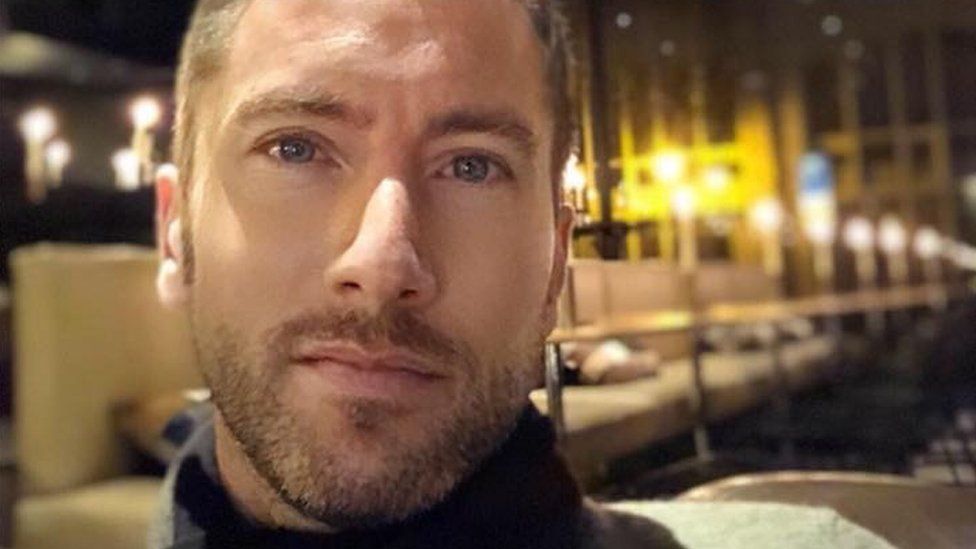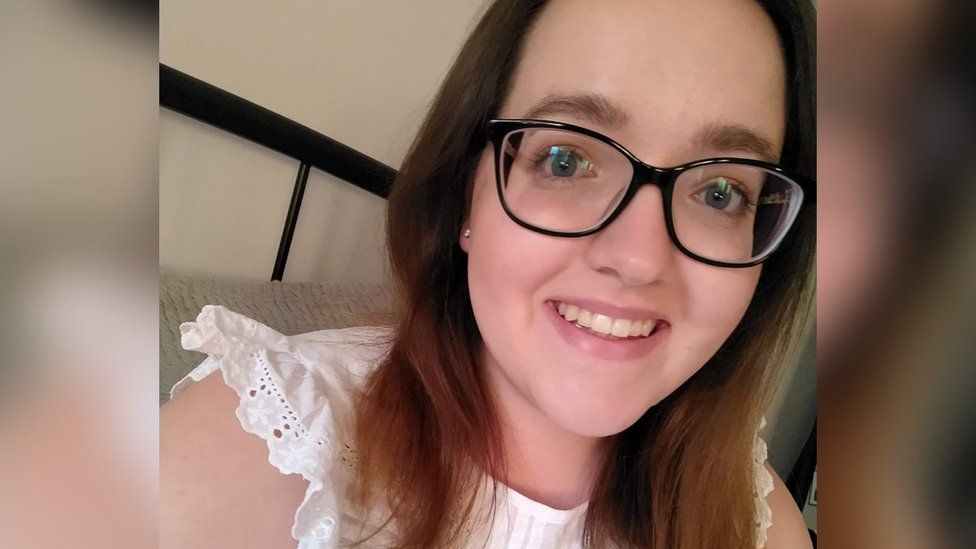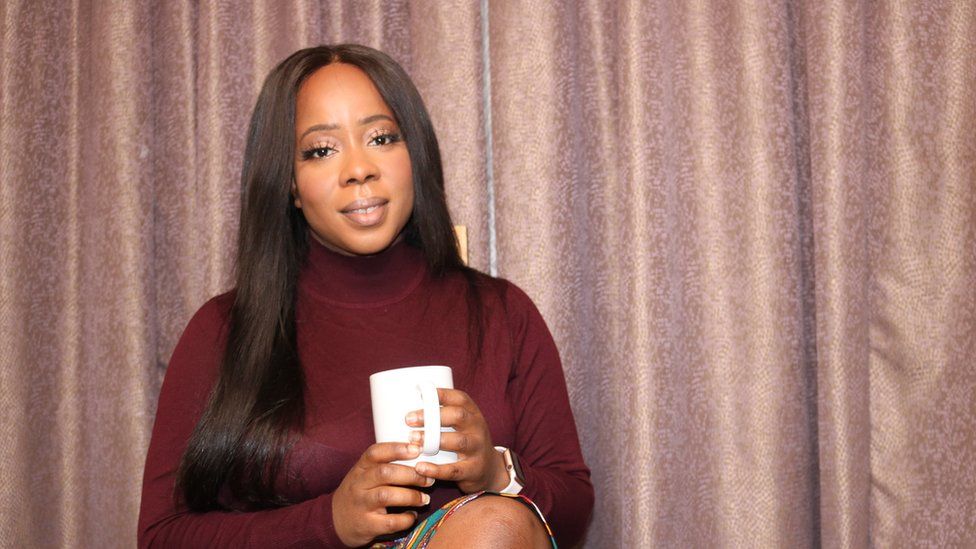Media
Gen Z calling for more honesty on social media, experts say – BBC.com

Could social media be forced to clean up its act? Experts say young people, the drivers and target audience for sites like Instagram, are impatient to see greater authenticity online because of their growing awareness of how it can negatively affect their mental health.
Generation Z, people aged from 18 to 25, has been credited with the rise in popularity of ethical companies and now is thought to be responsible for changing how brands, specifically in the cosmetics world, approach their online presence.
Social media commentators are reporting a shift in behaviour away from the highly polished, aesthetically-pleasing world that Instagram used to serve up, in exchange for a “simple, back to basics” reality that is bringing people more authentic and more relatable role models.
That trend is supported by campaigns such as #filterdrop – which in 2020 encouraged social media users to post selfies without using a filter in the hope of seeing “more real skin” online.
Sasha Pallari, who leads the campaign, said she realised how damaging the use of filters – with their ability to brighten your skin, change your nose shape or plump your lips – was to people’s metal health.
Sasha went on to lobby the Advertising Standards Authority, which, as a result, ruled that influencers could not use filters in adverts if they exaggerated the effect of a product.

“Gen Z are far more aware and conscious of brands’ ethical position on things and what they stand for, and their expectations of brands to act responsibly,” Matt Navarra said.
He is a leading social media commentator who previously advised the government as a digital communications expert.
“I think those expectations and understanding of this age group has put pressure on industry as a whole to change, so I would definitely say there has been an acceleration of this shift.”
Sasha, a 30-year-old professional make-up artist and curve model from Somerset, claims companies ditching skin filters on social media is “no longer just a trend” but is now a “necessity”.
“That is actually all I ever wanted,” she said.
“It was never to ‘out’ people for not being confident enough to show up unfiltered, it was for there to be more restrictions to be put in place so that people don’t have an option … that is what I think has happened now.
“Brands have been made to realise how damaging this can be, it was a cycle that everyone was caught up in… but we are now in a better place for sure.”

Mr Navarra agrees.
“What we have seen in social media over the last couple of years is this shift towards things that look less polished, less very aesthetically pleasing, much more simple and back to basics,” he said.
“There has been an increase in how savvy they [younger people] are around what they are seeing is possibly not necessarily real.”
He said the change in mindset was down to a combination of factors, including parenting and education, as well as campaign’s like Sasha’s, and a change in the type of role models children look up to.
One company hoping to set an example is Cult Beauty.
Last year it launched the UpCloseOnSkincare campaign aiming to dispel unrealistic depictions of skin.
Cult Beauty said it fully supported Sasha’s campaign and was “stoked to see her passion drive actual change to the ASA regulations”.
Its CEO Alexia Inge said: “Manipulating images to present an unattainable ideal, or over-represent how a product looks on the skin, hair or lashes should be consigned to history, like corsets and whitewashing.”
She said The UpCloseOnSkincare campaign focused on “no filters, no photoshop… just skin”.
According to its research, 45% of Cult Beauty’s community said they would feel uncomfortable uploading an unfiltered image of their skin to social media.
Because of that, Ms Inge said it was important for the company to continue to encourage others “to celebrate and love the skin they were in”.

Young people who spoke to the BBC about their experiences on social media have repeatedly mentioned the negative impact it has on them.
Hannah said she used to follow influencers on Instagram who made her feel bad about her body image.
“It got me thinking that my body needed to look like theirs, and I began to have unrealistic expectations of being a slim model.
“I found it was really damaging my mental health, so I took a step back and unfollowed them,” she said.
‘Instagram is life’
Now she says she follows body-positive accounts.
“I’ve started to follow people who look more like me, and that’s improved my body confidence.”
Despite the success of her #filterdrop campaign, Sasha remains concerned about the effect it can have on young people.
And she is not alone.

“Instagram is life and that virtual reality is becoming young people’s reality,” Mariam Adegoke, a GP and founder of the Adegoke Wellness Clinic, said.
Social media has led to an increased risk of anxiety, body dissatisfaction, low self-esteem and depression, she added.
Dr Adegoke blamed filters for creating artificial standards of what beauty is meant to look like and said people comparing themselves to others on apps like Instagram was also negatively impacting mental health.
‘Long way’ yet
“It is like a cycle, where the more they consume, the more they believe they are not good enough, or pretty enough, and filters go on to further consolidate that false belief,” she said.
Following the ASA ruling, Dr Adegoke said there had potentially been an improvement on a corporate level, but there was still a “very long way to go”.
She said perhaps some influencers had moved away from using filters, “maybe some in the sponsored posts they do for brands, but I think in general it is still definitely rife, and I still think that it is having the same impact it was having last year”, she added.
She agreed though that young people were becoming more aware that pictures and photos on social media were not always as they seemed.

The use of filters remains widely debated.
They are used by millions of people every day – and seen by an even larger potential audience, Instagram alone has some 28 million users just in the UK, according to the German statistics company Statista.
The issue is gaining traction in decision-making circles; MP Luke Evans has introduced the Digitally Altered Body Images bill.
It is something Bristol mental health charity, Off the Record (OTR), tackles regularly.
Wellbeing practitioner, Antonia Gladders, helps to deliver a therapeutic group named “Shameless”.
The group is for young people, aged 11-17, in Bristol, north Somerset and south Gloucestershire, with body image concerns.

She said: “The young people we are seeing are coming to us feeling negatively about themselves, and how they look, a lack of confidence and feeling like they are fighting a losing battle, but are also really knowledgeable about social media and how that is impacting them and people their age.
“Filters and social media have just made an existing problem – of that ideal body type, which we have had throughout history – worse, it has amplified it to a new level.
“Anything that tries to challenge that, like #filterdrop, is really positive.
“We have to be cautious though, there is no quick fix, and while they are great, it is so tied up with mental health there needs to be a holistic approach in tackling the issue.”
Ms Gladders called for more therapeutic settings so that people who recognised they might be struggling had somewhere to turn.

Building on the momentum behind #filterdrop Sasha is setting her sights on bigger targets, to help us remove the filters from our carefully curated lives on social media.
She wants to see greater openness and honesty online.
“I choose to show up online in a way that my entire life is unfiltered, I don’t have any issue with showing myself when I am done-up or when I have just woken up, there is no in-between.
“But I can show up unfiltered, and people might still think my life is incredible because I am only showing them two minutes out of a day.
“Unless I go to My Stories and say ‘I have had a bad day’, people will just assume my life is fantastic because that is just what we do.
“If we take away that false reality, and the editing and all of that, it helps people to realise that what they are comparing themselves to is similar to them, and that is normal.”
Mr Navarra says it is this, rather than any regulation on social media, that will drive change the most change.
He argues everyone has a role to play from parents, schools, educators, brands, influencers and regulatory bodies, for the sake of our young people.
He says these diverse groups can achieve different things towards the common goal of protecting the mental health of young and vulnerable users as they grow up.

“We are at a pivotal moment now in terms of regulation and particularly in the UK and Europe, which is seen as a leading light in terms of this kind of stuff,” he said.
“There is a need for the government to set the tone and poke the parameters that these companies have to work within … but what will really help shift peoples’ experiences online is more about that education and what people see in their feeds.”
“This level of desire for more authentic, relatable, believable characters and role models, is the thing for me that brings about the biggest hope and biggest amount of change and we have started to see that quite significantly,” he concludes.
Dr Adegoke said she would like to see more regulation on social media – where she said the pressure on people first starts.
“Ultimately it bottoms down to honesty and integrity,” she said.
“We need to see a balance of life and that it isn’t all good in the way Instagram, or Snap Chat or whatever social media you use, may make you think.”

Follow BBC West on Facebook, Twitter and Instagram. Send your story ideas to: bristol@bbc.co.uk
Related Internet Links
Media
Trump could cash out his DJT stock within weeks. Here’s what happens if he sells
Former President Donald Trump is on the brink of a significant financial decision that could have far-reaching implications for both his personal wealth and the future of his fledgling social media company, Trump Media & Technology Group (TMTG). As the lockup period on his shares in TMTG, which owns Truth Social, nears its end, Trump could soon be free to sell his substantial stake in the company. However, the potential payday, which makes up a large portion of his net worth, comes with considerable risks for Trump and his supporters.
Trump’s stake in TMTG comprises nearly 59% of the company, amounting to 114,750,000 shares. As of now, this holding is valued at approximately $2.6 billion. These shares are currently under a lockup agreement, a common feature of initial public offerings (IPOs), designed to prevent company insiders from immediately selling their shares and potentially destabilizing the stock. The lockup, which began after TMTG’s merger with a special purpose acquisition company (SPAC), is set to expire on September 25, though it could end earlier if certain conditions are met.
Should Trump decide to sell his shares after the lockup expires, the market could respond in unpredictable ways. The sale of a substantial number of shares by a major stakeholder like Trump could flood the market, potentially driving down the stock price. Daniel Bradley, a finance professor at the University of South Florida, suggests that the market might react negatively to such a large sale, particularly if there aren’t enough buyers to absorb the supply. This could lead to a sharp decline in the stock’s value, impacting both Trump’s personal wealth and the company’s market standing.
Moreover, Trump’s involvement in Truth Social has been a key driver of investor interest. The platform, marketed as a free speech alternative to mainstream social media, has attracted a loyal user base largely due to Trump’s presence. If Trump were to sell his stake, it might signal a lack of confidence in the company, potentially shaking investor confidence and further depressing the stock price.
Trump’s decision is also influenced by his ongoing legal battles, which have already cost him over $100 million in legal fees. Selling his shares could provide a significant financial boost, helping him cover these mounting expenses. However, this move could also have political ramifications, especially as he continues his bid for the Republican nomination in the 2024 presidential race.
Trump Media’s success is closely tied to Trump’s political fortunes. The company’s stock has shown volatility in response to developments in the presidential race, with Trump’s chances of winning having a direct impact on the stock’s value. If Trump sells his stake, it could be interpreted as a lack of confidence in his own political future, potentially undermining both his campaign and the company’s prospects.
Truth Social, the flagship product of TMTG, has faced challenges in generating traffic and advertising revenue, especially compared to established social media giants like X (formerly Twitter) and Facebook. Despite this, the company’s valuation has remained high, fueled by investor speculation on Trump’s political future. If Trump remains in the race and manages to secure the presidency, the value of his shares could increase. Conversely, any missteps on the campaign trail could have the opposite effect, further destabilizing the stock.
As the lockup period comes to an end, Trump faces a critical decision that could shape the future of both his personal finances and Truth Social. Whether he chooses to hold onto his shares or cash out, the outcome will likely have significant consequences for the company, its investors, and Trump’s political aspirations.

Media
Arizona man accused of social media threats to Trump is arrested

Cochise County, AZ — Law enforcement officials in Arizona have apprehended Ronald Lee Syvrud, a 66-year-old resident of Cochise County, after a manhunt was launched following alleged death threats he made against former President Donald Trump. The threats reportedly surfaced in social media posts over the past two weeks, as Trump visited the US-Mexico border in Cochise County on Thursday.
Syvrud, who hails from Benson, Arizona, located about 50 miles southeast of Tucson, was captured by the Cochise County Sheriff’s Office on Thursday afternoon. The Sheriff’s Office confirmed his arrest, stating, “This subject has been taken into custody without incident.”
In addition to the alleged threats against Trump, Syvrud is wanted for multiple offences, including failure to register as a sex offender. He also faces several warrants in both Wisconsin and Arizona, including charges for driving under the influence and a felony hit-and-run.
The timing of the arrest coincided with Trump’s visit to Cochise County, where he toured the US-Mexico border. During his visit, Trump addressed the ongoing border issues and criticized his political rival, Democratic presidential nominee Kamala Harris, for what he described as lax immigration policies. When asked by reporters about the ongoing manhunt for Syvrud, Trump responded, “No, I have not heard that, but I am not that surprised and the reason is because I want to do things that are very bad for the bad guys.”
This incident marks the latest in a series of threats against political figures during the current election cycle. Just earlier this month, a 66-year-old Virginia man was arrested on suspicion of making death threats against Vice President Kamala Harris and other public officials.
Media
Trump Media & Technology Group Faces Declining Stock Amid Financial Struggles and Increased Competition

Trump Media & Technology Group’s stock has taken a significant hit, dropping more than 11% this week following a disappointing earnings report and the return of former U.S. President Donald Trump to the rival social media platform X, formerly known as Twitter. This decline is part of a broader downward trend for the parent company of Truth Social, with the stock plummeting nearly 43% since mid-July. Despite the sharp decline, some investors remain unfazed, expressing continued optimism for the company’s financial future or standing by their investment as a show of political support for Trump.
One such investor, Todd Schlanger, an interior designer from West Palm Beach, explained his commitment to the stock, stating, “I’m a Republican, so I supported him. When I found out about the stock, I got involved because I support the company and believe in free speech.” Schlanger, who owns around 1,000 shares, is a regular user of Truth Social and is excited about the company’s future, particularly its plans to expand its streaming services. He believes Truth Social has the potential to be as strong as Facebook or X, despite the stock’s recent struggles.
However, Truth Social’s stock performance is deeply tied to Trump’s political influence and the company’s ability to generate sustainable revenue, which has proven challenging. An earnings report released last Friday showed the company lost over $16 million in the three-month period ending in June. Revenue dropped by 30%, down to approximately $836,000 compared to $1.2 million during the same period last year.
In response to the earnings report, Truth Social CEO Devin Nunes emphasized the company’s strong cash position, highlighting $344 million in cash reserves and no debt. He also reiterated the company’s commitment to free speech, stating, “From the beginning, it was our intention to make Truth Social an impenetrable beachhead of free speech, and by taking extraordinary steps to minimize our reliance on Big Tech, that is exactly what we are doing.”
Despite these assurances, investors reacted negatively to the quarterly report, leading to a steep drop in stock price. The situation was further complicated by Trump’s return to X, where he posted for the first time in a year. Trump’s exclusivity agreement with Trump Media & Technology Group mandates that he posts personal content first on Truth Social. However, he is allowed to make politically related posts on other social media platforms, which he did earlier this week, potentially drawing users away from Truth Social.
For investors like Teri Lynn Roberson, who purchased shares near the company’s peak after it went public in March, the decline in stock value has been disheartening. However, Roberson remains unbothered by the poor performance, saying her investment was more about supporting Trump than making money. “I’m way at a loss, but I am OK with that. I am just watching it for fun,” Roberson said, adding that she sees Trump’s return to X as a positive move that could expand his reach beyond Truth Social’s “echo chamber.”
The stock’s performance holds significant financial implications for Trump himself, as he owns a 65% stake in Trump Media & Technology Group. According to Fortune, this stake represents a substantial portion of his net worth, which could be vulnerable if the company continues to struggle financially.
Analysts have described Truth Social as a “meme stock,” similar to companies like GameStop and AMC that saw their stock prices driven by ideological investments rather than business fundamentals. Tyler Richey, an analyst at Sevens Report Research, noted that the stock has ebbed and flowed based on sentiment toward Trump. He pointed out that the recent decline coincided with the rise of U.S. Vice President Kamala Harris as the Democratic presidential nominee, which may have dampened perceptions of Trump’s 2024 election prospects.
Jay Ritter, a finance professor at the University of Florida, offered a grim long-term outlook for Truth Social, suggesting that the stock would likely remain volatile, but with an overall downward trend. “What’s lacking for the true believer in the company story is, ‘OK, where is the business strategy that will be generating revenue?'” Ritter said, highlighting the company’s struggle to produce a sustainable business model.
Still, for some investors, like Michael Rogers, a masonry company owner in North Carolina, their support for Trump Media & Technology Group is unwavering. Rogers, who owns over 10,000 shares, said he invested in the company both as a show of support for Trump and because of his belief in the company’s financial future. Despite concerns about the company’s revenue challenges, Rogers expressed confidence in the business, stating, “I’m in it for the long haul.”
Not all investors are as confident. Mitchell Standley, who made a significant return on his investment earlier this year by capitalizing on the hype surrounding Trump Media’s planned merger with Digital World Acquisition Corporation, has since moved on. “It was basically just a pump and dump,” Standley told ABC News. “I knew that once they merged, all of his supporters were going to dump a bunch of money into it and buy it up.” Now, Standley is staying away from the company, citing the lack of business fundamentals as the reason for his exit.
Truth Social’s future remains uncertain as it continues to struggle with financial losses and faces stiff competition from established social media platforms. While its user base and investor sentiment are bolstered by Trump’s political following, the company’s long-term viability will depend on its ability to create a sustainable revenue stream and maintain relevance in a crowded digital landscape.
As the company seeks to stabilize, the question remains whether its appeal to Trump’s supporters can translate into financial success or whether it will remain a volatile stock driven more by ideology than business fundamentals.
-

 Sports18 hours ago
Sports18 hours agoLawyer says Chinese doping case handled ‘reasonably’ but calls WADA’s lack of action “curious”
-

 News18 hours ago
News18 hours agoRCMP say 3 dead, suspects at large in targeted attack at home in Lloydminster, Sask.
-

 News17 hours ago
News17 hours agoB.C. to scrap consumer carbon tax if federal government drops legal requirement: Eby
-

 Sports3 hours ago
Sports3 hours agoDolphins will bring in another quarterback, while Tagovailoa deals with concussion
-

 News18 hours ago
News18 hours agoCeiling high for Vancouver Whitecaps midfielder Ahmed: Canada coach
-

 News18 hours ago
News18 hours agoShapovalov, Auger-Aliassime lift Canada over Finland 3-0 in Davis Cup tie
-

 News17 hours ago
News17 hours agoA linebacker at West Virginia State is fatally shot on the eve of a game against his old school
-

 Sports4 hours ago
Sports4 hours agoDavid Beckham among soccer dignitaries attending ex-England coach Sven-Goran Eriksson’s funeral





















